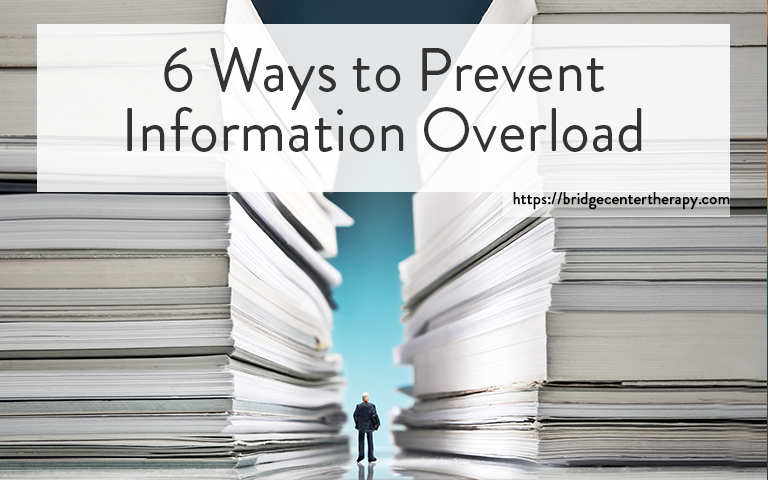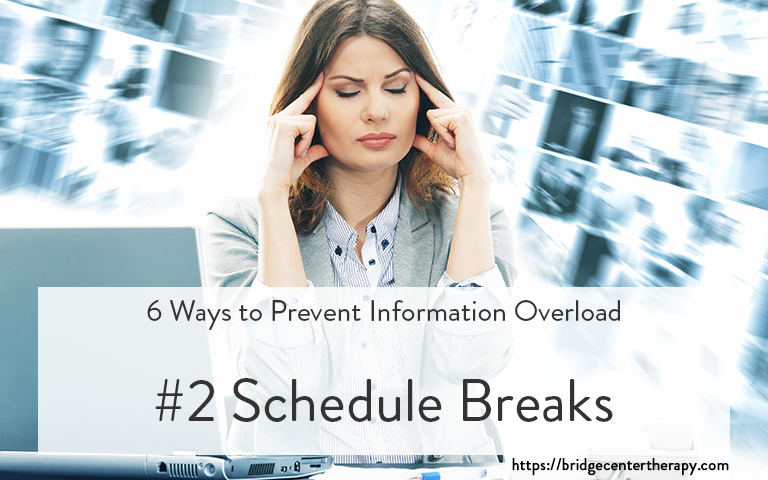
Information overload leads to overstimulation of your brain. It occurs when we’re exposed to too much irrelevant information. A stressed brain is at greater risk of neurodegenerative disorders. Being informed is not bad, but overload can cause the brain to lose its learning ability and problem-solving skills. Now that you are aware of the risks, here are a few strategies that will help you protect your brain.
You can get there from here.
Scan and read only what is important. Listen to the inner voice that will tell you if the information you are processing is of value to you.
Take a break away from your computer and your phone. By giving your brain a break you will regain perspective. The quiet time will allow you to focus on creative problem-solving.

3- Accept the Gaps in Your Knowledge
It’s okay if you don’t know everything. Realize that you’re already spending enough time on knowledge acquisition and that your time will be better spent doing something else.
4- Embrace It
Decide which information outlets you consider the most valuable. Spend an hour or two a day absorbing as much information as you need to feel informed.
5- Choose Your Conversations
Some people can leave you feeling mentally drained. Avoid people who talk too much and give you too much detail. Your time and energy are limited. Choose wisely.

6- Keep Your Environment Clean
A clutter-free environment will lead to a clutter-free mind. Cleaning your desktop and arranging your computer files will set you up to handle overflow when it occurs.
Need Help? We Can Help.
The best way to deal with overload is to consciously consume information. Focus on what you need to find and stick to your parameters. Save the interesting, but not vital information for another time. In the long term you will reap the benefits of feeling less stressed and having a clearer mind – both of which are great for improving your mental health.
This post was written by Lani Gouws on behalf of The Bridge Therapy Center. If you have any questions or require more information, please contact Lani here: lani@bridgecentertherapy.com
